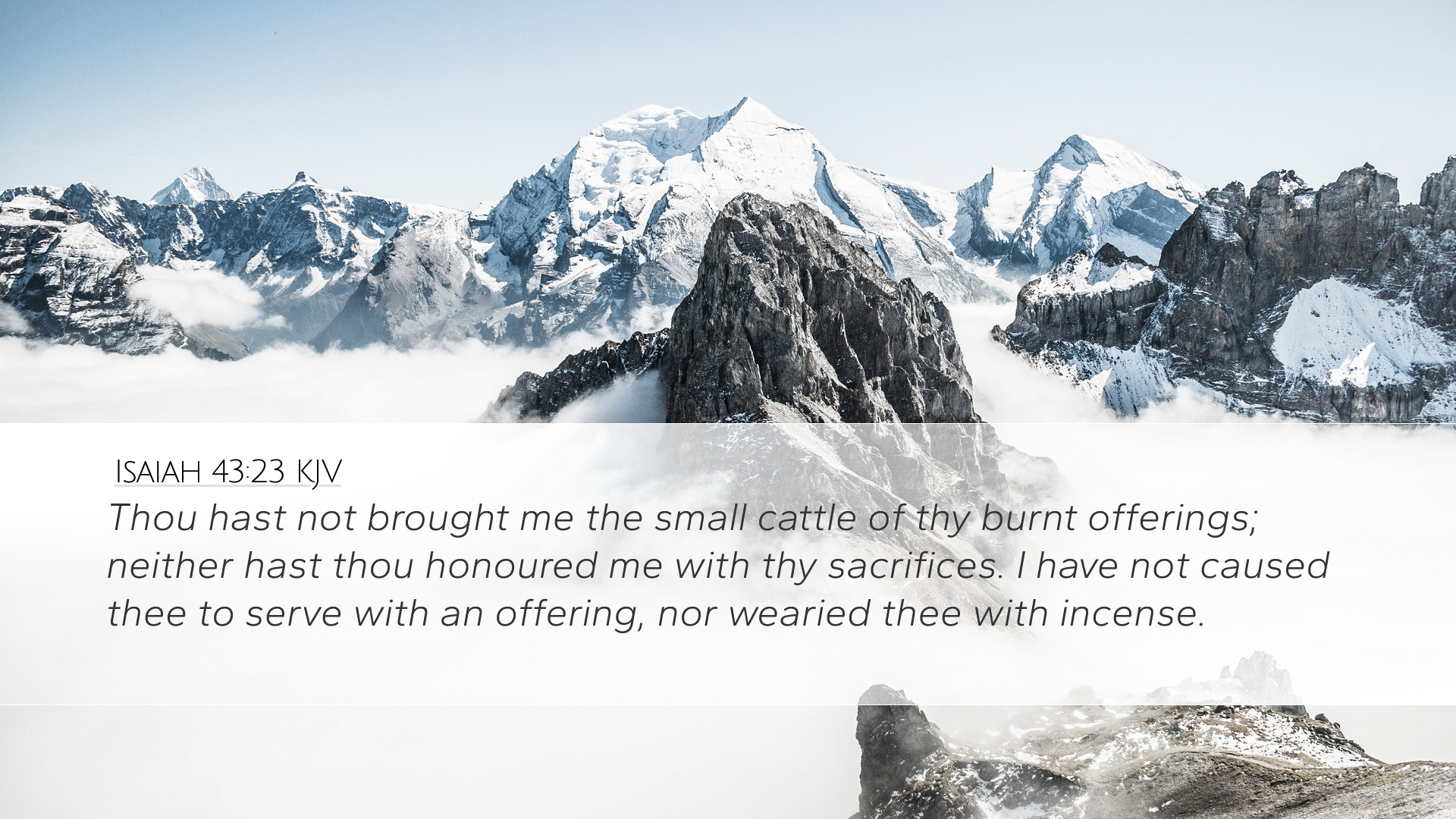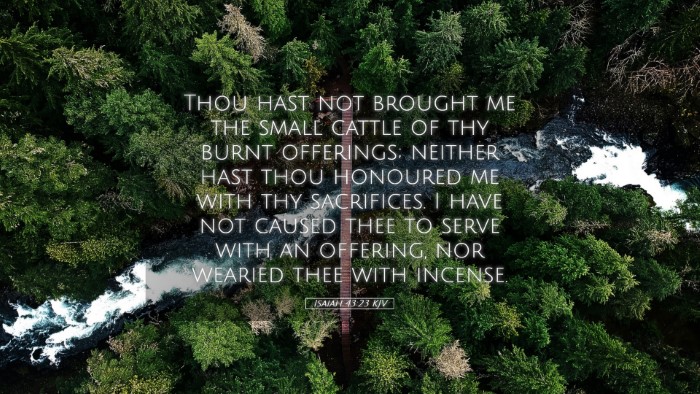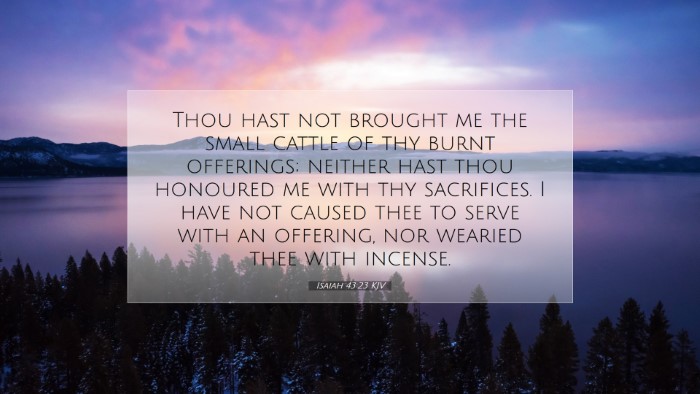Commentary on Isaiah 43:23
Verse Overview: Isaiah 43:23 states, "You have not brought me your sheep for burnt offerings, nor honored me with your sacrifices. I have not burdened you with grain offerings nor wearied you with demands for incense." This verse is situated within a passage that highlights God's relationship with His people and their obligations toward Him.
Contextual Background
The Book of Isaiah is a prophetic text considered one of the major works of the Old Testament. Written during a tumultuous period in Israel's history, Isaiah communicates God's message of judgment, redemption, and the faithfulness of the covenant. The 43rd chapter emphasizes God's sovereignty and His commitment to His people despite their failures.
Theological Implications
This verse speaks volumes about the nature of worship and the expectations of God towards His people:
- God’s Expectations of Worship: God emphasizes that mere rituals of worship do not suffice without genuine faith and obedience. Matthew Henry notes that these outward actions need to be reflective of inner devotion.
- The Nature of Offerings: Albert Barnes remarks on the inadequacy of offerings that do not stem from true relationship with God. He suggests that God seeks a heart inclined towards Him more than ceremonial practices.
- God’s Burden vs. Human Perception: Adam Clarke stresses that God has not tasked His people with heavy demands. Instead, He desires their love, loyalty, and sincere worship over mere compliance to rituals.
Historical Context
During Isaiah's time, the people of Israel engaged in various forms of worship influenced by surrounding nations. This often led to a focus on rituals rather than the intent behind them:
- Divine Displeasure: The sacrificial system was instituted by God; however, it had degenerated into empty traditions devoid of heartfelt engagement.
- Call to Repentance: Isaiah’s exhortation serves both as a warning and a call to restore genuine worship. Barnes points out that this challenge is as relevant today as it was then.
Exegesis of Key Phrases
The specific phrases within the verse merit deeper examination:
- "You have not brought me your sheep for burnt offerings" - This reflects a tangible expression of dedication and sacrifice that the Israelites were neglecting. Their failure to bring offerings conveys a lack of commitment to God.
- "nor honored me with your sacrifices" - This emphasizes respect and reverence, indicating that the people’s actions (or lack thereof) directly affect their standing with God.
- "I have not burdened you with grain offerings" - The language used here indicates God’s gentleness. He does not impose strenuous demands but rather desires authenticity in worship.
Applications for Today
This verse resonates with contemporary believers in several ways:
- Status of Worship: Modern worship must transcend formality and engage the heart. True worship is a lifestyle, not merely an event or routine.
- Hearts of Obedience: God seeks obedience borne from love rather than obligation. This challenges pastors and congregants alike to examine their motives.
- Intimacy with God: The call to engage with God intimately and honestly remains. Scholars must encourage dialogue within their congregations on what true worship looks like.
Conclusion
Isaiah 43:23 confronts both the historical context and modern believers regarding the nature of worship. In focusing purely on rituals without inner transformation, God's people are invited to step back and reassess their relationship with Him. As Matthew Henry eloquently points out, the essence of true communion with God is one of sincerity, and nothing less will fulfill divine expectation.


